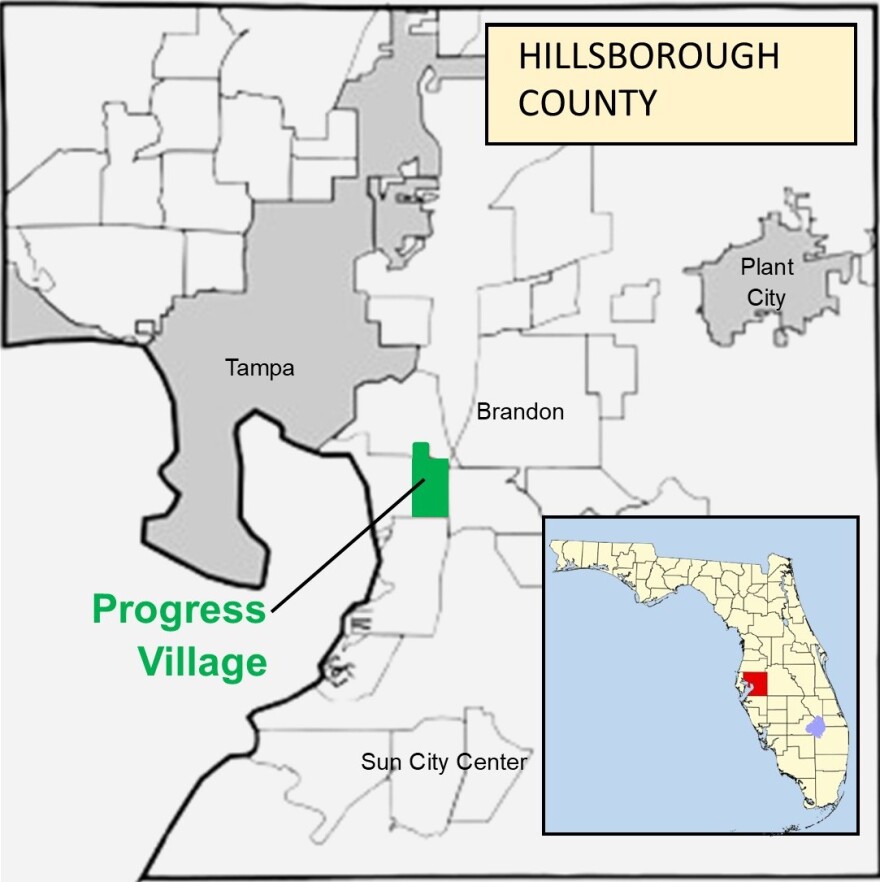Within the span of two weeks in 2024, the greater Tampa Bay region was slammed by two major hurricanes.
This week, we’re sharing stories of resilience from people who went through the storms.
Hurricane Milton dropped a record amount of rainfall and flooded several areas, including Progress Village in Hillsborough County starting Oct. 9 of last year.
Marlise Tolbert-Jones is on the Progress Village Civic Council and has been a part of the historically Black neighborhood outside of Tampa for 55 years.
The following is an edited transcript of an interview where Tolbert-Jones shares what's happened since that day and what residents need to fully recover.

What happened?
We're standing on the corner of 82nd Street. This is Flower Avenue. There are a lot of trucks coming and going because they are building this huge retention pond to help alleviate the flooding.
This entire area was flooded. I live on Endive Avenue, which is right up the street there. I couldn't get out. The boats were rescuing people within. It's always flooded down toward the school area, and there is some kind of ditch or drainage area there, but that was flooded.
And all of these homes to the back of me, they were flooded, and people couldn't get out. And the thing that was most strange is that on the left side of the village, which it never floods, they were flooded as well.

I personally consider it an act of God. I don't care how many retention ponds you build, how many holes you build, how many whatever you do … when God gets ready for something, that's what he's going to do.
However, there are things that could have helped to alleviate and to get things done sooner than later, opposed to waiting until we got to a crisis situation, is something that should have been addressed and taken care of sooner.
We've always had some type of flooding, even if it didn't last for long. And it is unnecessary because the county, whomever, have allowed contractors, or whomever, to come in and build around us.
Everything is higher than us, so we're like in a pit, so everything runs down, and it's not fair to us. We can't build up, so they are to make sure that they're covered, and everything is coming to us.
What it's like now?
This season has not been hurricanes or storms, but it has been very hard rain, and we've had flooding already. So, what happens is, the rain comes down so fast and so hard, and it rains for a long period of time until we still have the issue.
So, I can't say whether or not this new retention pond is going to be 100% effective, but I'm praying that it will do a lot more than what we've had in the past.
I have several homes in Progress Village I inherited. I have tarps on several houses, but then the code enforcement is cracking down on people that have tarps on their houses, and I'm one of those people. They're telling me that I'm in violation because I have a tarp on my house, but my insurance company hasn't paid out, and I cannot afford to put a roof on eight houses.

We have a couple of houses that people have not moved back in, and it hurts, because these are people that we grew up with, and when we have to not see their faces, not be able to wave and know that they're actually going through something because of the lack of not having what they need to make it happen, it hurts. It hurts.
So, I would hope that the programs that they have in place that they can actually help and not hurt a person by not taking their homes from them, but helping them to keep their homes.





